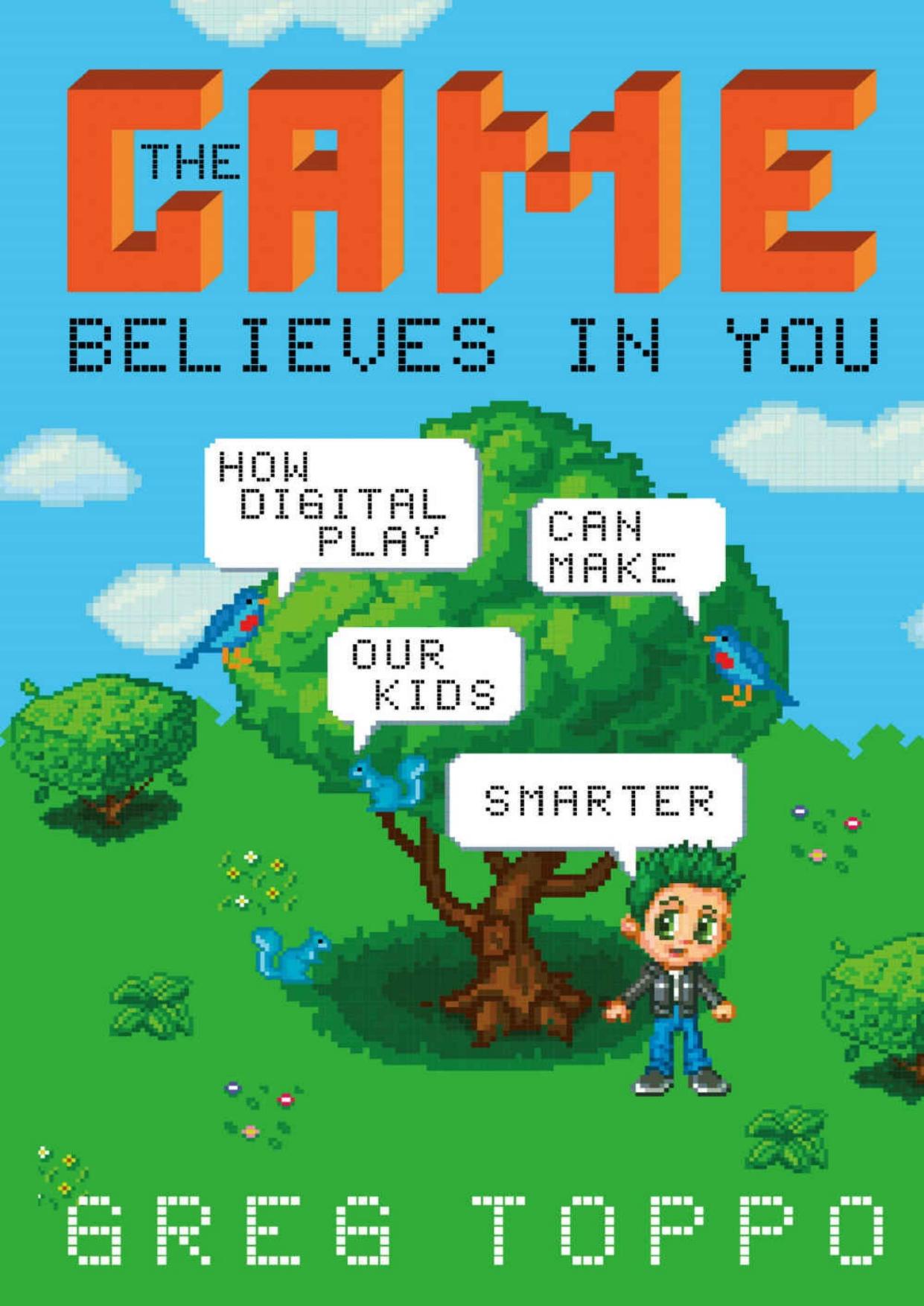The Game Believes in You: How Digital Play Can Make Our Kids Smarter by Greg Toppo

Author:Greg Toppo [Toppo, Greg]
Language: eng
Format: azw3, pdf
Publisher: St. Martin's Press
Published: 2015-04-21T04:00:00+00:00
Eight
Project Unicorn
How a Heartless Media Conglomerate Could Spark a New Golden Age of Educational Gaming
The bare storefront banquet hall looks like the kind of place you’d rent for a massive poker game, if people rented halls for poker games anymore. Set back from a century-old cobblestoned side street in Dumbo, that bustling, almost wholly manufactured Brooklyn neighborhood at the base of the Manhattan and Brooklyn bridges, the hall has white-painted brick walls, exposed plumbing, an open kitchen, and well-worn wooden floors. A Craigslist ad might read “Hipster Bar Mitzvahs.”
On a hazy July morning, eleven young people, each one exactly the right age for a Bar Mitzvah, sit at the back of the room, taking up all the spaces around a pair of eight-foot banquet tables. Someone has thrown a green-and-white-checked plastic tablecloth over the surface and it puckers as each kid pokes intently at a brand-new tablet computer. At first the scene resembles a kind of hyper-focused computer camp. But supervisors insist—several times, actually—that it’s not a camp. They’re not licensed child-care providers, for one thing, and more to the point, they’re actually paying the kids to be here. Show up faithfully from 10 a.m. to 4 p.m., three days a week in the summer and play a bunch of unfinished video games, and you’ll earn a $100 Amazon gift card. One more thing: as you play, you must be willing to let the adults in the room point one of several tiny digital video cameras at you. Propped on tripods, the cameras are scattered across the tables, aimed at kids’ faces and recording their facial expressions as they play.
With the gift card comes the unofficial and decidedly un-hip title “junior game designer.” At a smaller table nearby, an actual game designer named Joe Mauriello shakes hands with a boy whose Hello, My Name Is . . . sticker displays the handwritten word Julian. Each morning for the past few weeks, Julian and his best friend John have showed up from Pelham, in Westchester County. Julian’s mother works in an office nearby. John sits nearby, playing another game, and this morning the boys are dressed identically, as best friends sometimes are: blue T-shirts, blue shorts, white sneakers. About the only difference is their hair: John’s, blond and delicate, is shorn close in a clean summer cut. Julian’s is dark, thick, and a bit messy, the beginnings of a little tail showing down his back.
Before Julian can get himself into a chair, Mauriello hands him a tablet. “So this is Food Web,” Mauriello says. Julian sits, scans the screen and presses PLAY. No instructions, no introductions, no explanations. He’s in the game immediately, and Mauriello sits back and watches as the boy slides his finger around the screen to move an animated agouti, a kind of unappealing brown South American rodent, as it simultaneously searches for meals and tries to avoid predators. Over the next few minutes, just one sound comes from the table: a barely audible brew of
Download
The Game Believes in You: How Digital Play Can Make Our Kids Smarter by Greg Toppo.pdf
This site does not store any files on its server. We only index and link to content provided by other sites. Please contact the content providers to delete copyright contents if any and email us, we'll remove relevant links or contents immediately.
Blood, Sweat, and Pixels by Jason Schreier(3611)
Godot 4 Game Development Cookbook by Jeff Johnson(2910)
Dawn of the New Everything by Jaron Lanier(2768)
The Art of Doom by Bethesda(2150)
Significant Zero by Walt Williams(1957)
Creative Character Design by Bryan Tillman(1922)
Human-Computer Interaction in Game Development with Python: Design and Develop a Game Interface Using HCI Technologies and Techniques by Joseph Thachil George Meghna Joseph George(1905)
Art Of Atari by Tim Lapetino(1787)
World of Warcraft Chronicle Volume 3 by Blizzard Entertainment(1738)
Mission Python by Sean McManus(1686)
The Ultimate Roblox Book by David Jagneaux(1685)
Pillars of Eternity Guidebook by Obsidian Entertainment(1666)
Dawn of the New Everything: Encounters with Reality and Virtual Reality by Jaron Lanier(1612)
Unreal Engine Virtual Reality Quick Start Guide by Jessica Plowman(1561)
1628927445Game by Unknown(1553)
Unreal Engine 4 Virtual Reality Projects by Kevin Mack(1553)
The Ultimate Player's Guide to Minecraft by Stephen O'Brien(1532)
Learning D by 2015(1515)
Unity 2018 By Example by Alan Thorn(1461)
